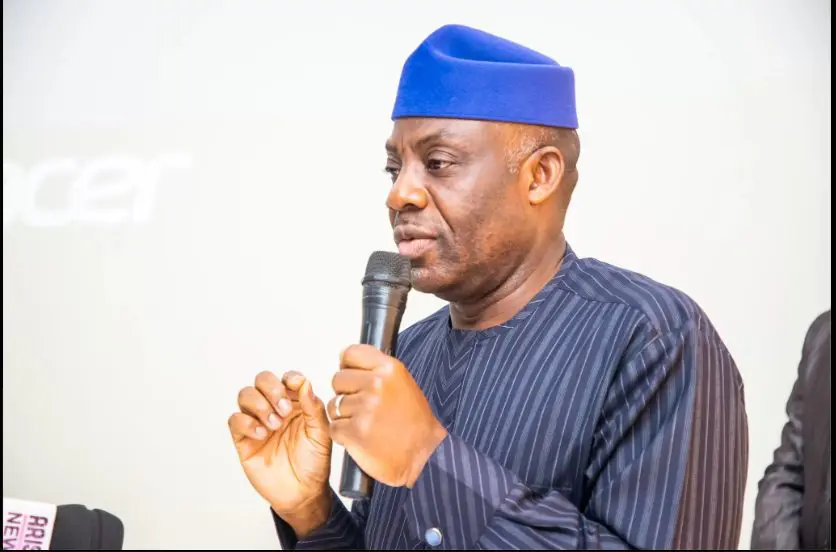Nigeria’s Minister of Education, Dr Tunji Alausa, has vowed to put a stop to the trend of tertiary institutions producing graduates who lack technical skills.
The Minister who recently got appointed into the cabinet of President Bola Tinubu to man the Ministry of Education said he plans to shift to a model where education will be 20 percent theoretical and 80 percent practical.
He made the disclosure at the 2024 TETFund National Research Fair and Exhibition in Abuja, which officially opened on Monday.
While emphasizing the need to promote technical and vocational education, across board, he decried a situation where tertiary institutions continue to churn out graduates who lack the requisite skills to function effectively in society.
His words, “We are going to realign our educational system to meet the needs of Nigerians. We have a unique demographic profile—over 220 million people, with 70 percent of them below the age of 30.
“These young men and women are energetic, eager to learn, and ready to contribute to this country. We need to equip them with the right skills.
“We will shift to a model where education is 20 percent theoretical and 80 percent practical. That’s how we are going to move forward. Enough of producing graduates who lack technical skills.
“We need to create jobs and provide life skills for young Nigerians. For our TVET programs, we will incentivize people to enrol in technical schools. We will cover their tuition and build capacity in these schools.
“During their training, 20 percent will involve classroom learning, while 80 percent will be hands-on apprenticeship. This is how we will ensure they are ready to contribute meaningfully to the workforce,” he stated.
The Minister equally revealed that President Tinubu has approved N5 billion for investment in research activities for 2024 through the National Research Fund, managed by the Tertiary Education Trust Fund (TETFund).
Alausa noted that the fund is aimed at ensuring that appropriate research is conducted in public tertiary institutions to develop solutions to many of Nigeria’s national development challenges.
According to the Minister, “At this time in our democratic development, Nigeria is facing several challenges, including youth underemployment, the effects of poverty, insecurity, and infrastructure decay.
“However, we believe that the contributions of professionals, as showcased in this National Research Fair, will play a critical role in addressing these challenges.
“Our President, Bola Ahmed Tinubu, has already emphasized that his Renewed Hope Agenda will be implemented primarily based on local research and innovation outputs.
“As seen in other countries, economic growth cannot be achieved without leveraging the outcomes of research and technological efforts.”
Alausa noted that the Research Fair would also foster the desired synergy among relevant research and innovation agencies to accelerate the application of their efforts and results toward nation-building.
According to him, this synergy would ensure that the dividends of democracy are delivered efficiently and that research and innovation institutions, which are currently scattered across various ministries, are better coordinated for greater effectiveness.
Enough of producing graduates who lack technical skills – Education Minister

